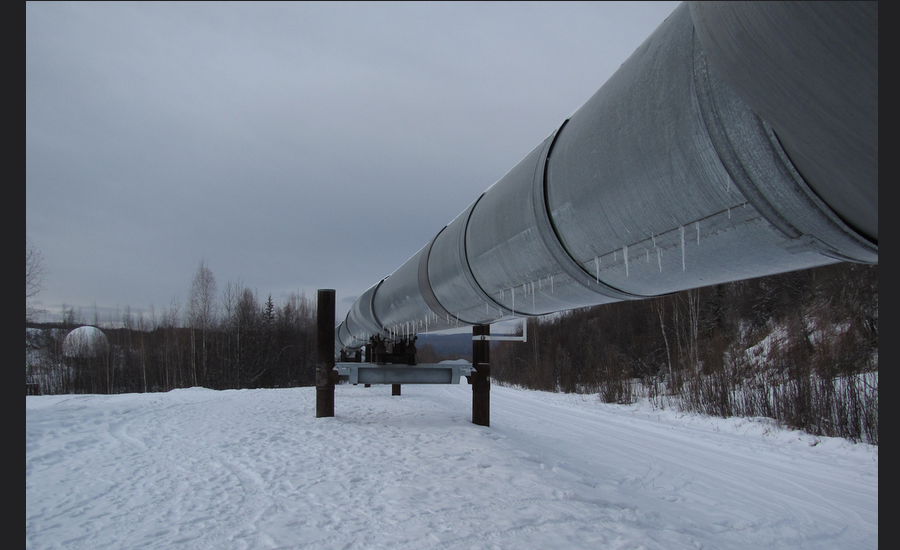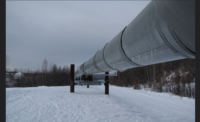PHMSA proposes new pipeline safety regs

The U.S. Department of Transportation’s Pipeline and Hazardous Materials Safety Administration (PHMSA) has proposed new requirements to strengthen Federal pipeline safety regulations related to pipeline accident and incident notification. The Operator Qualification, Cost Recovery and Accident Notification proposed rule would also allow PHMSA to recover costs for pipeline design reviews, and addresses several National Transportation Safety Board Recommendations related to operator qualification programs, personnel training, drug and alcohol testing and acceptable methods for assessing crack defects in pipelines.
One hour deadline
The proposed rule would require pipeline operators to notify the National Response Center (NRC) of a pipeline release at the earliest practicable moment following the confirmed discovery of an accident or incident involving natural gas and hazardous liquid pipelines, but not later than one hour following confirmed discovery.
"We constantly seek to raise the bar on safety," said U.S. Transportation Secretary Anthony Foxx. "This proposed rule will improve safety in a number of ways, including a notification time limit which eliminates any ambiguity about timeliness in reporting and is crucial to the ability to mitigate damage and protect people, property and the environment following an incident."
Who pays
In addition to establishing time limits for pipeline failure notifications, the rulemaking proposal addresses Section 13 of the Pipeline Safety Act, which allows PHMSA to recover costs for pipeline design reviews, as well as several National Transportation Safety Board Recommendations related to operator qualification programs, personnel training, drug and alcohol testing and acceptable methods for assessing crack defects in pipelines.
"All of these updates together will provide significant safety benefits and move us closer to addressing pending Congressional mandates and other important safety recommendations," said Stacy Cummings, PHMSA’s Interim Executive Director. "We will continue to update our regulations to positively influence pipeline operator safety programs and to address concerns related to failures, operator error and other safety risks."
Point by point
Specifically, the proposed rule would revise and strengthen the federal Pipeline Safety Regulations by establishing:
Updated requirements for operators to review the effectiveness of their operator qualification programs and ensure these programs cover any activity identified by the operator that affects the safety or integrity of the pipeline facility, including performance of operations, maintenance, construction, or emergency tasks;
- A fee structure and assessment methodology for PHMSA to recover costs associated with the design reviews of pipelines where design and construction costs total at least $2.5 billion or involve the use of new and novel technologies;
- Over-pressure protection requirements for farm taps, while also exempting them from Distribution Integrity Management Program requirements; • New requirements for pipeline operators to report the permanent reversal of flow (lasting more than 30-days), or a change in product, to PHMSA;
- An amendment to pipeline safety regulations to add procedures for renewing an expiring special permit previously issued to a pipeline operator by PHMSA; and
- An amendment to pipeline safety regulations to require drug and alcohol testing of each employee whose performance either contributed to a pipeline accident or cannot be completely discounted as a contributing factor to an accident.
No time limit right now
Currently, Federal regulations do not specify a time limit for notification after a pipeline release, but requires pipeline operators to notify the NRC at the earliest practicable moment once a release is discovered. Section nine of the Pipeline Safety, Regulatory Certainty, and Job Creation Act of 2011 directed PHMSA to revise Federal Pipeline Safety regulations to establish time limits for the telephonic notification of pipeline releases to the NRC. PHMSA has advised operators in the past that the earliest practicable opportunity usually means one-to-two hours after the discovery of the incident. The rulemaking proposal issued today further establishes an enforceable time limit for pipeline failure notifications and adds to PHMSA’s January 30, 2013 Advisory Bulletin, in which the agency advised pipeline operators to contact the NRC within one hour of discovery of a pipeline incident. The rule also clarifies the practical meaning of confirmed discovery to when there is sufficient information to determine that a reportable event has occurred, even if an evaluation has not been completed.
The NPRM has been transmitted to the Federal Register for publication. An actual date of publication will be determined by the Federal Register, but a preview of the rulemaking proposal transmitted by PHMSA is available on the agency’s website. PHMSA seeks public comment on the proposed amendments and the public comment period for this notice ends 60 days after the date of publication in the Federal Register.
All comments can be made using the link provided at the top of the notice and should include the agency name and docket number PHMSA-2013-0163 at the beginning of the comment. The NPRM also provides instructions for submitting comments by fax or by mail.
For more information on the U.S. DOT’s efforts to improve pipeline safety and awareness, including details about the proposed rule and comments received from the agency’s Advance Notice of Proposed Rulemaking, visit the PHMSA website at www.phmsa.dot.gov.
The Pipeline and Hazardous Materials Safety Administration develops and enforces regulations for the safe, reliable, and environmentally sound operation of the nation's 2.6 million mile pipeline transportation system and the nearly 1 million daily shipments of hazardous materials by land, sea, and air. PHMSA is one of ten agencies within the U.S. Department of Transportation.
Looking for a reprint of this article?
From high-res PDFs to custom plaques, order your copy today!






.jpg?t=1721257160)

